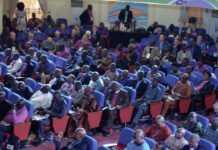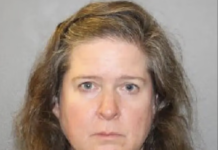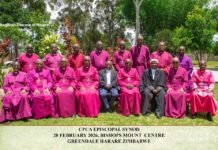The Church of the Province of Central Africa’s Bishop of Upper Shire has reversed a general excommunication of 28 members of his diocese who had called for his removal from office.
On 24 September 2019 the Rt. Rev. Brighton Malasa published a decree of “greater excommunication” against 17 priests and 11 lay leaders of his diocese, removing them from the fellowship of the Anglican Communion.
However, on 27 September 2019, Bishop Malasa stated that “after much thought and prayer” and following consultation with the primate of Central Africa, he rescinded his excommunication.
Last year lay leaders launched a campaign to oust their bishop, accusing him of misconduct and abuse of office. The Nyasa Times reported that representatives from 37 of the 41 parishes in the Malawi diocese met at St George’s in Zomba on 14 December 2018 and endorsed a call to remove Bishop Masala from office.
Local newspapers reported the charges leveled against the bishop — none of which have so far been confirmed by any tribunal or court — were financial, moral and political. The bishop has been accused of adultery and having children out of wedlock with women other than his wife. He has been accused of appointing cronies to senior positions in diocesan schools and hospitals, who then seek fees for preferential treatment in admissions and services.
The lay leaders also accuse the bishop of diverting funds donated from overseas groups into his own pocket, while also involving himself in partisan party politics. Meetings between the protestors and the bishop’s representatives had proven unfruitful.
However, in a pastoral letter released on 10 March 2019, the Most Rev. Albert Chama, Primate of Central Africa, said the provincial constitution did not permit the removal of a bishop from office based upon a petition. However, he promised that an independent auditor would review the diocese’s books.
In his letter, Archbishop Chama wrote the provincial canon 13(1) states a “Diocesan Bishop can leave office if he desires to resign before the completion of his 65th year and the resignation be sent to the Archbishop in writing and Bishops of the Province shall judge whether the resignation should be accepted or not.”
Or, under Canon 24, “it is also possible for a Bishop to vacate his seat if he is charged with an offence which is brought before a Church Court and found guilty and the Archbishop sentences him to permanent deprivation.”
A vote of “no confidence” was not among the options available to remove a bishop from office, he said. An audit of the diocesan accounts would be conducted, the archbishop said, and “only then will appropriate action be taken in accordance with the Constitution and Canons of the Province,” if necessary.
In his Friday letter, Bishop Malasa said he was extending an “olive branch” to his opponents in the diocese, hoping that they could put their differences aside and seek an amicable resolution to the dispute.






The promise to audit the books was given in March. Such an audit should not take more than a few days. Why has it yet not been completed and/or the result made known, 6 months down the line? It should have been high priority, and a competent audit would certainly get to the bottom of the allegation of misappropriating church funds. If the donations went into the bank, they would have had to leave the bank, under cover of a named recipient whose identity, if suspect, could be investigated.